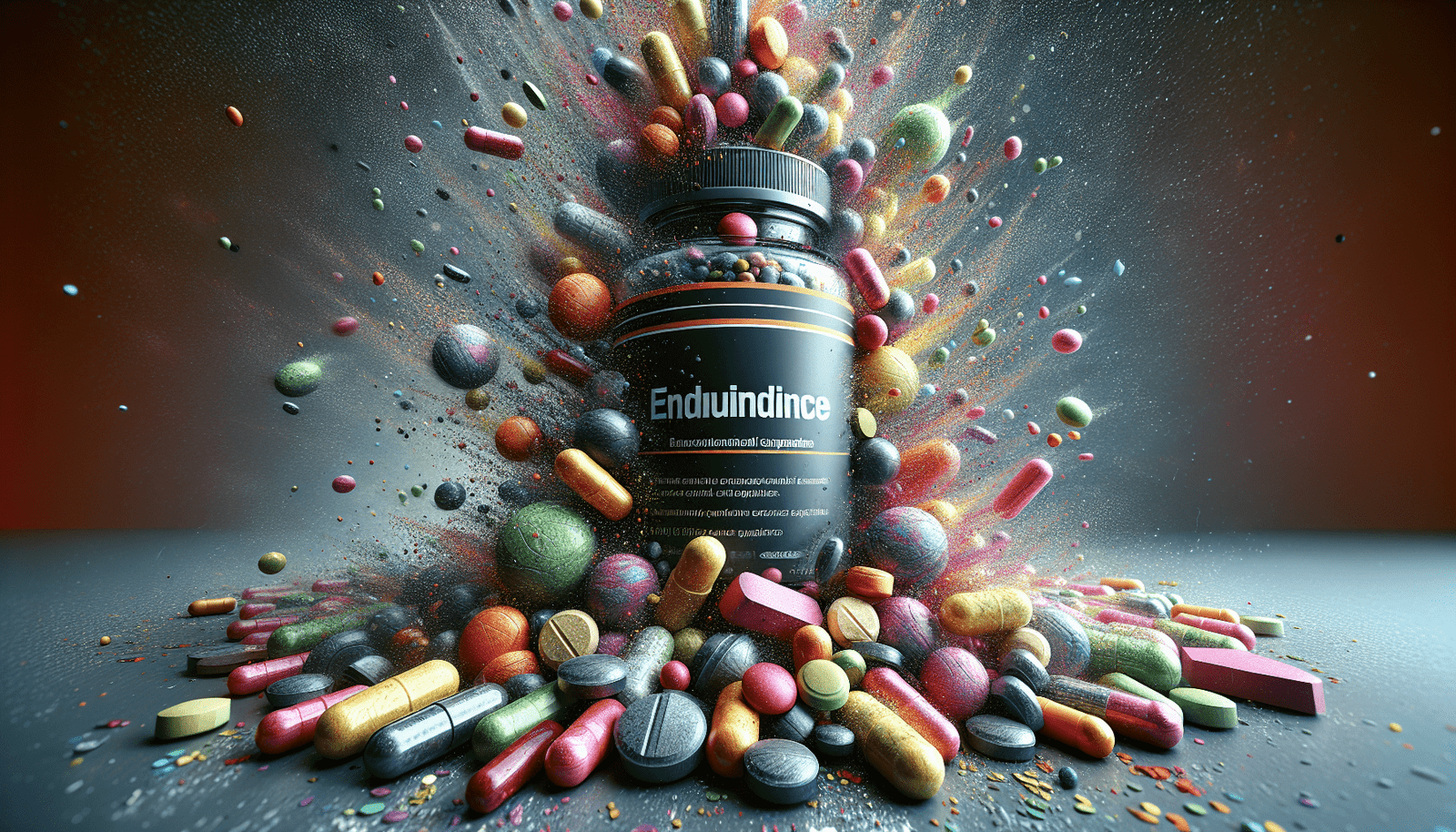Are you curious to know how long your supplements last before they expire? It’s important to keep track of the shelf life of your supplements to ensure their effectiveness and safety. In this article, we will explore the expiration dates of supplements and provide insights on how long they typically last. Whether you have a stockpile of vitamins or are considering purchasing new ones, read on to discover all you need to know about the longevity of your supplements.

What are supplements?
Supplements are products that are designed to complement the diet and provide additional nutrients that may be lacking in regular meals. They come in various forms, such as pills, capsules, powders, and liquids. Supplements can contain vitamins, minerals, amino acids, herbal extracts, and other beneficial substances. They are intended to support overall health, fill nutritional gaps, and enhance specific aspects of well-being.
Definition of supplements
Supplements, also known as dietary supplements, are products formulated to supplement the diet and provide essential nutrients that may not be obtained in sufficient amounts from food alone. They are not intended to replace a balanced diet but rather act as a complement to ensure adequate nutrient intake. Supplements may come in the form of pills, capsules, liquids, or powders and can be purchased over-the-counter or with a prescription.
Different types of supplements
There are various types of supplements available on the market, each targeting different aspects of health and well-being. These include:
- Vitamins and minerals: These supplements provide essential vitamins (such as vitamin C, vitamin D, or B vitamins) and minerals (such as calcium, iron, or zinc) that may be deficient in the diet.
- Protein powders: These supplements are commonly used by athletes and fitness enthusiasts to support muscle repair and growth.
- Herbal supplements: Made from plant extracts, these supplements are often used for their potential medicinal properties and holistic benefits.
- Fish oil supplements: These supplements contain omega-3 fatty acids, which are essential for brain health, cardiovascular health, and overall well-being.
- Probiotics: Probiotic supplements contain beneficial bacteria that support a healthy gut and immune system.
- Pre-workout supplements: These supplements are designed to enhance energy, focus, and endurance during exercise.
Supplement expiration dates
Supplement expiration dates play a crucial role in ensuring the safety, efficacy, and quality of the products. Understanding the importance of expiration dates is vital for consumers to make informed decisions and protect their health.
Importance of expiration dates
Expiration dates indicate the point beyond which a supplement may no longer be as effective or safe as it was when it was manufactured. They serve as a guide for consumers to determine the remaining shelf life of a product and plan its usage accordingly. Consuming expired supplements may potentially lead to reduced potency, degradation of nutrients, and even health risks.
Federal regulations on supplement expiration dates
The U.S. Food and Drug Administration (FDA) requires dietary supplement manufacturers to include expiration dates on their products, ensuring that consumers have accurate information about the freshness and shelf life of the supplement. These regulations aim to maintain consumer confidence, prevent the sale of expired products, and promote overall product safety.
Does expiration mean supplements are unsafe?
While expiration dates indicate a point of diminishing quality or effectiveness, they do not necessarily mean that expired supplements are automatically unsafe to consume. However, it is generally recommended to avoid using expired supplements as their potency and quality may have significantly declined. To ensure safety and efficacy, it is best to adhere to the expiration dates provided by the manufacturer.
Factors affecting supplement shelf life
Several factors influence the shelf life of supplements. Understanding these factors can help ensure that supplements remain at their optimal quality and effectiveness for as long as possible.
Ingredient stability
The stability of the active ingredients in supplements contributes to their shelf life. Some ingredients, such as vitamins and minerals, can degrade over time due to exposure to factors like heat, light, and air. Manufacturers take this into consideration when formulating supplements and select ingredients that can withstand varying storage conditions to maintain their potency.
Storage conditions
Proper storage conditions play a crucial role in preserving the quality of supplements. Factors such as temperature, humidity, and exposure to light can impact the potency and stability of the ingredients. It is generally recommended to store supplements in cool, dry places away from direct sunlight or excessive heat.
Packaging quality
The quality of the packaging used for supplements can impact their shelf life. Properly sealed and airtight containers help protect supplements from moisture and external contaminants, thus maintaining their integrity over time. Quality packaging materials can also provide additional protection against light and oxygen, minimizing the degradation of the supplement’s ingredients.
Hygiene practices
Maintaining good hygiene practices while handling and consuming supplements is essential for their longevity. Contaminated hands or improper storage practices can introduce bacteria or other harmful microorganisms into the product, potentially compromising its quality and safety. Following proper hygiene practices, including washing hands before handling supplements and using clean utensils, can help prevent contamination and extend the shelf life.
Common types of supplements and their shelf life
Different types of supplements have varying shelf lives, primarily influenced by their ingredients, formulation, and storage conditions. Here are some examples of popular supplements and their typical shelf lives.
Vitamins and minerals
Most vitamins and minerals have relatively long shelf lives, typically ranging from one to three years when stored properly. However, certain vitamins, such as vitamin C, are more prone to degradation over time. It is essential to store these supplements away from heat and light to maintain their potency.
Protein powders
Protein powders, particularly those derived from whey or plant-based sources, can have shelf lives ranging from six months to a year. Proper storage, such as sealing the container tightly and avoiding exposure to moisture, is crucial to prevent protein degradation and clumping.
Herbal supplements
Herbal supplements can vary in their shelf lives depending on the specific herb or botanical used. While some herbal supplements can last up to two years, others may have shorter shelf lives due to the potential degradation of active compounds. Storing herbal supplements in a cool, dry place can help maintain their potency.
Fish oil supplements
Fish oil supplements, rich in omega-3 fatty acids, are susceptible to oxidation and rancidity over time. These supplements generally have shelf lives of one to two years. Proper storage in a cool environment, away from light and heat, is critical to prevent degradation.
Probiotics
Probiotic supplements contain live bacteria, and their shelf lives can be relatively short, typically ranging from six months to two years. Maintaining proper storage conditions, such as refrigeration when required, helps preserve the viability of the beneficial bacteria.
Pre-workout supplements
Pre-workout supplements often contain ingredients like caffeine and other stimulants, which can degrade over time. Their shelf lives usually range from one to two years, but it is essential to check the expiration dates and store them in cool, dry environments to maintain their effectiveness.

Signs of expired supplements
Recognizing the signs of expired supplements is crucial to prevent potential health risks and ensure optimal results when consuming these products.
Changes in color, texture, or smell
One of the most apparent signs of an expired supplement is a noticeable change in color, texture, or smell. For example, vitamins or capsules may become discolored or develop a strong, unpleasant odor. Powders may clump, harden, or exhibit a different texture than when initially purchased. These changes often indicate degraded potency and decreased effectiveness.
Loss of potency
Expired supplements may lose their potency, meaning they no longer contain the same levels of active ingredients as claimed on the label. This can diminish their effectiveness and render them less beneficial than when they were fresh. Regularly using expired supplements can result in suboptimal nutrient intake or inadequate health benefits.
Potential health risks
Using expired supplements can pose potential health risks, as the quality and safety of the product may be compromised. The degradation of active ingredients could lead to inefficacy or, in some cases, the formation of harmful substances. To ensure safety and efficacy, it is best to discard expired supplements and seek replacements from reputable sources.
Proper storage and handling of supplements
To maximize the shelf life and effectiveness of supplements, it is essential to practice proper storage and handling techniques.
Recommended storage conditions
Most supplements are best stored in cool, dry, and dark environments. Exposure to heat, humidity, and light can degrade the quality and potency of the ingredients. Store supplements in their original packaging or other opaque containers, ensuring they are tightly sealed to limit exposure to external factors.
Avoiding exposure to heat, light, and moisture
Heat, light, and moisture are the enemies of supplement shelf life. Store supplements away from sources of heat and direct sunlight, as these can accelerate the degradation process. Moisture can lead to clumping or the growth of microorganisms, so it is crucial to keep supplements in a dry environment to prevent contamination.
Keeping supplements away from children and pets
Supplements should be stored in a secure location, away from the reach of children and pets. Some supplements may be appealing to pets or resemble candy, posing a potential health risk if inadvertently consumed. Storing supplements in childproof containers or cabinets can help prevent accidental ingestion.
Following specific storage instructions
Certain supplements may require specific storage conditions to maintain their effectiveness. For example, probiotics may need refrigeration to preserve the viability of the live bacteria. It is essential to read and follow the specific storage instructions provided by the manufacturer for each supplement.

How to determine supplement shelf life
To determine the shelf life of supplements, consider the following factors:
Checking expiration dates
The first step in determining a supplement’s shelf life is to check its expiration date. The expiration date provides an estimate of how long the product will remain at its optimal quality. Expired supplements are generally not recommended for use, as their potency and quality may have significantly declined.
Understanding manufacturing dates
Some supplements may provide a manufacturing date instead of or in addition to an expiration date. While not as common, understanding the manufacturing date can give an idea of the supplement’s age and how long it has been sitting on the shelf. It is important to take note of the shelf life indicated by the manufacturer for that specific supplement.
Assessing storage conditions
Evaluating the storage conditions under which the supplement has been kept is another aspect of determining its shelf life. If the supplement has been exposed to excessive heat, moisture, or light, its potency and quality could have been compromised, even if it is within the expiration date. Assessing the storage conditions can help make an informed decision regarding the usability of the supplement.
Should expired supplements be used?
While expired supplements may not necessarily be unsafe, it is generally recommended to avoid using them. The expiration date serves as an indicator of the supplement’s freshness, potency, and overall quality. Consuming expired supplements may result in diminished effectiveness or potential health risks.
Risks associated with using expired supplements
Using expired supplements can lead to reduced potency, potentially rendering them less effective than intended. In some cases, expired supplements may have undergone chemical changes that could result in the formation of harmful substances. To minimize the risk of adverse effects, it is advisable to discard expired supplements and replace them with fresh ones.
Consulting a healthcare professional
If uncertain about the safety or efficacy of a supplement, consulting a healthcare professional, such as a doctor or pharmacist, is recommended. They can provide personalized guidance based on individual health needs and help determine if the expired supplement can still be used safely or if an alternative should be sought.
Disposing of expired supplements properly
Proper disposal of expired supplements is essential to prevent accidental ingestion or misuse. Check local regulations for guidelines on the safe disposal of supplements. In most cases, it is advisable to discard them in sealed containers or bags and dispose of them with regular household waste. Avoid flushing supplements down the toilet or pouring them down the drain.

Purchasing supplements wisely
When purchasing supplements, it is essential to make informed choices to ensure quality, safety, and effectiveness.
Checking expiration dates before buying
Always check the expiration dates of supplements before making a purchase. Avoid products with expiration dates that are too close to the purchase date, as this may indicate an older stock. By selecting supplements with longer shelf lives, you can ensure they will remain effective for a reasonable period.
Quality assurance certifications
Look for supplements that carry quality assurance certifications from reputable organizations. Certifications such as Good Manufacturing Practices (GMP) ensure that the manufacturing process meets stringent quality control standards. Choosing certified supplements can provide additional confidence in their quality and safety.
Reputable brands and retailers
Choose supplements from reputable brands and purchase from trusted retailers. Established brands often have rigorous quality control procedures in place, ensuring the reliability and accuracy of their products. Trusted retailers generally have high standards of product storage and handling, minimizing the risk of purchasing expired or improperly stored supplements.
Avoiding bulk purchases
While purchasing supplements in bulk may seem convenient, it is generally advisable to avoid doing so unless there is a specific need. This helps ensure that the supplements are consumed before expiration, reducing the risk of wasting products or using expired supplements unknowingly.
Conclusion
Recognizing and understanding supplement expiration dates is essential for maintaining the quality, safety, and effectiveness of these products. By adhering to the recommended storage and handling practices, consumers can prolong the shelf life and maintain the potency of their supplements. Checking expiration dates, considering storage conditions, and seeking professional advice when uncertain are all crucial steps in making informed decisions about supplement usage. When purchasing supplements, prioritizing reputable brands, quality assurance certifications, and checking expiration dates can help ensure the purchase of high-quality, reliable products. By considering these factors and practices, individuals can maximize the benefits of supplements and support their health and well-being effectively.
